Sierra Leone needs "urgent support" for thousands of people hit by mudslides and massive flooding in the capital, the country's president says.
Ernest Bai Koroma said entire communities had been wiped out and that the "devastation was overwhelming us".
Nearly 400 people have been killed and hundreds more are missing after muddy rubble swept through the Regent area near the capital, Freetown, on Monday.
A mass burial of victims is planned to free up space in mortuaries.
Dozens more bodies were discovered on Tuesday as rescue efforts to recover people from destroyed houses in the area continue.
The Red Cross, which said that 312 bodies had been recovered on Monday, said that it was struggling to get equipment in to extricate bodies that were buried deep in the mud.
The aid agency added that an estimated 600 people were still missing.
ActionAid's humanitarian director, Richard Miller, said that "there are currently over 1,500 people reported missing", Sky News reports.
Meanwhile, Interior Minister Paolo Conteh told Sierra Leone's state broadcaster that thousands of people remain unaccounted for.
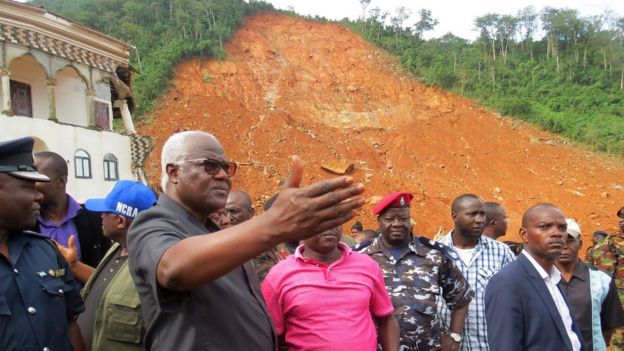
Homes in Freetown were engulfed after part of Sugar Loaf mountain collapsed following heavy rain early on Monday. Many victims were still asleep in their beds when disaster struck.
It is feared the number of dead will rise further. Another 3,000 people are estimated to have lost their homes.
Ishmael Charles, a charity worker for the Healey Relief Foundation and Caritas Freetown, told the BBC that words could not do justice to the scale of the tragedy.
"You will see a huge number of people crying with those who have lost their family members," he said.
"It's very difficult to paint what the reality looks like, because it's more scary and very sad and disastrous than anyone can be able to describe."
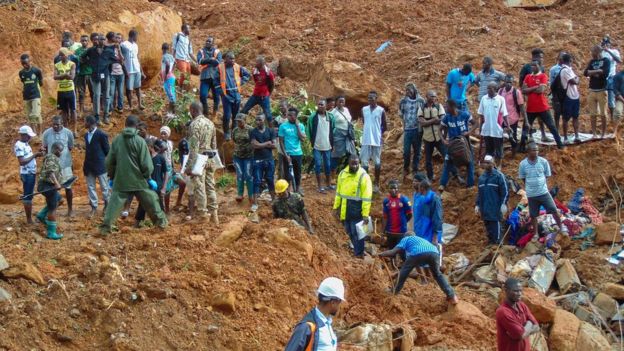
In the worst hit area, the Regent district, where dozens of houses were submerged when the hillside collapsed at about 06:00 GMT, those who survived spoke of the family members they had lost - or still hoped to find alive.
"My wife is dead. My children are all dead. This morning my children and I talked before I left for work. One of them even chose the socks I should put on," a man called Malikie told the BBC.
Another woman, called Adama, said she was still searching for her baby.
"We were inside. We heard the mudslide approaching. We were trying to flee. I attempted to grab my baby but the mud was too fast. She was covered, alive.
"I have not seen my husband, Alhaji. My baby was just seven weeks old."
International aid agency Save the Children said one member of staff, along with his children, had disappeared.
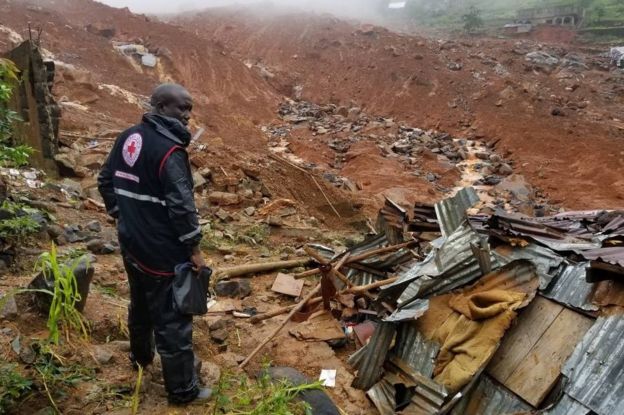
His colleague Ramatu Jalloh was driving past Regent at the same time that the wall of mud and debris hit the area.
"A lady ran on to the road and started gesticulating wildly," he said. "She called out to another lady who had been riding a bike in front of us who, after a brief conversation, started crying and looked very upset," she said.
"It was clear from their reactions that something terrible had happened. Soon afterwards, another man ran towards our car. He was crying about the number of lives that had been lost."
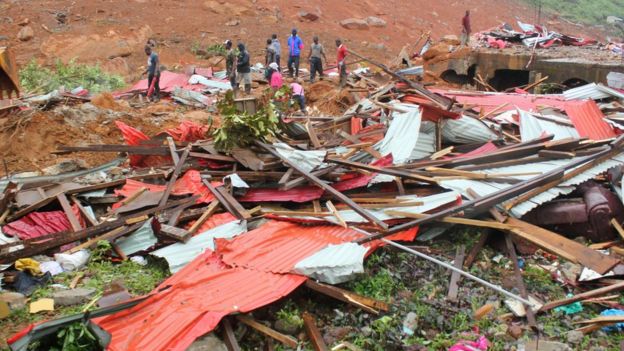
Fatmata Sesay, who lives on the hilltop area of Juba, managed to survive the mudslide after she and her family were woken by the pounding rain.
It was then they realised their home had been submerged in water.
"I only managed to escape by climbing to the roof of the house when neighbours came in to rescue me," she told AFP.
"We have lost everything and we do not have a place to sleep."
Earlier, President Koroma urged people to stay away from the affected areas.
"This tragedy of great magnitude has once again challenged us to come together, to stand by each other and to help one another," he said.
"Let me assure you that my government is fully engaged on this situation and in collaboration with our development partners we have already established an emergency response centre at Regent to coordinate our response and to provide relief to the survivors."
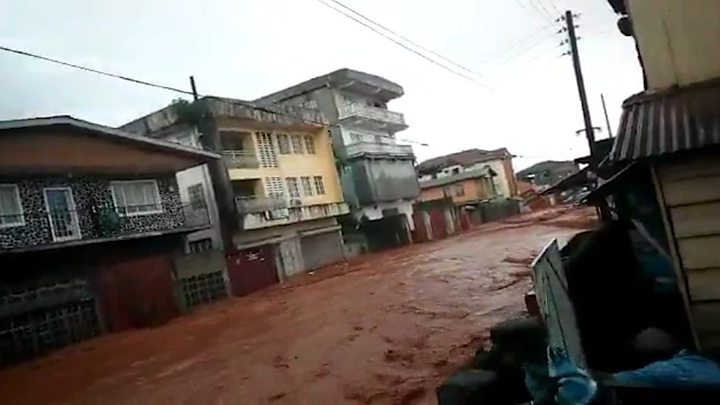
Photo: BBC Weather's Tomasz Schafernaker explains why Sierra Leone has been hit with torrential rain and mudslides
Flooding is not unusual in Sierra Leone, where unsafe housing in makeshift settlements can be swept away by heavy rains.
The rains often hit areas in and around Freetown, an overcrowded coastal city of more than one million people.
In 2015, Freetown endured deadly floods sparked by monsoon rains that killed 10 people and left thousands more homeless.
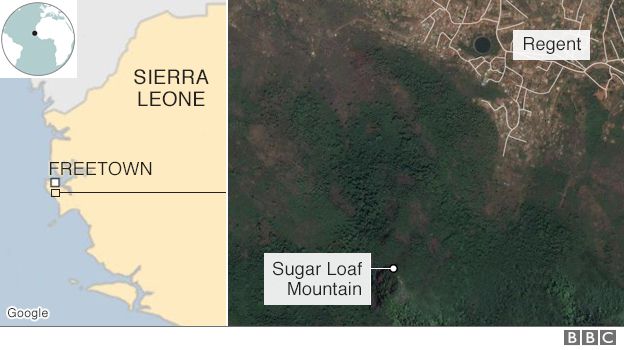
Latest Stories
-
Obed Psych and Lamisi unite on new single ‘Together Forever’
14 minutes -
Kantamanto fire: Sprinter Benjamin Azamati donates GH¢10k to victims
14 minutes -
BlacVolta redefining entertainment and lifestyle media in Accra’s Detty December
19 minutes -
T-bills auction: Government to raise GH¢6.35bn on January 17, 2025
25 minutes -
African Trade Chamber inducts 120 into 2025 Future Trade Leaders Fellowship
29 minutes -
I used my Zylofon money to put up a studio and invest in my career – Joyce Blessing
32 minutes -
Cloud computing market poised for rapid expansion in Nigeria, Ghana in 2025 – Report
34 minutes -
Agordzo’s misconduct makes him unfit to teach leadership at UPSA – Petitioner to GTEC
36 minutes -
The galamsey epidemic: Spreading destruction, not prosperity
38 minutes -
Inflation pressures are structural, requires complementary fiscal policy – Report
39 minutes -
The boom of EVs: Lurking dangers in transition from combustion to electric engines
40 minutes -
Crisis in Kamgbunli: Mysterious fish disease affects livelihoods
43 minutes -
GSTEP inducts 42 semi-finalists in Ashanti Region
45 minutes -
Amira Global and KNUST forge partnership to revolutionise mining practices
53 minutes -
Public reacts to promise to abolish betting tax
58 minutes

